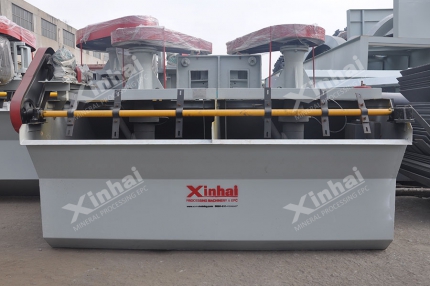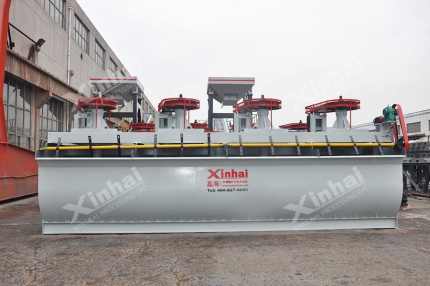In the field of mineral processing technology, a reasonable and correct flotation process is an important factor in achieving efficient and economical mineral separation and recovery. The reasonable selection of flotation technology can not only improve the quality of concentrate, but also maximize the recovery of useful minerals, thereby improving the economic benefits of the mineral processing plant. This article will discuss the factors that affect the selection of flotation process principles and the types of common flotation principle processes, aiming to provide you with a reference for optimizing the existing flotation process and selecting the appropriate flotation process.
Use the table of contents below to navigate through the guide:
01What are the factors that affect the selection of flotation process principles?
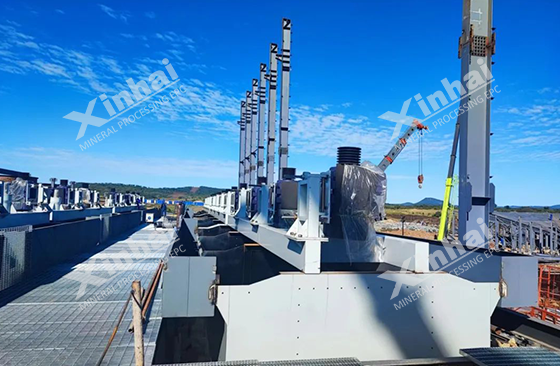
When selecting a flotation process, the properties of the ore and the requirements for the quality of the concentrate should be considered. The grade and composition of the original ore, the embedded particle size of useful minerals and the mineral symbiosis, the muddiness of the ore during the grinding process, the physical and chemical properties of the minerals, and other ore properties will affect the selection of the flotation process. In addition, the scale and technical and economic conditions of the beneficiation plant will also affect the determination of the flotation process, mainly affecting the complexity of the flotation process. Small-scale beneficiation plants with overlapping economic and technical conditions should choose a flotation process with a simpler process, while large-scale beneficiation plants with better technical and economic conditions can use complex flotation processes to maximize the recovery of concentrates. When dealing with complex ores with multiple useful minerals closely coexisting, a single flotation process cannot comprehensively recover various useful components, and it is often necessary to combine other beneficiation methods such as magnetic separation and gravity separation or metallurgical methods for combined beneficiation.
02Conventional flotation principle process types

Determining the flotation principle process mainly determines the number of flotation process stages and the flotation order of useful minerals. In actual production, it is usually necessary to connect the number of grinding stages with the flotation operation to divide the number of flotation stages. One-stage flotation process and stage grinding and stage flotation process are common sorting categories.
One-stage flotation process: After crushing and screening, the raw ore enters the grinding operation. After one stage of grinding or several consecutive stages of grinding processes, the ore is ground to the particle size required for separation at one time, and then flotation is performed to obtain the concentrate.
Stage grinding and stage flotation process: In the grinding stage, useful minerals of different embedded particle sizes are separated in the order of coarse first and then fine, and useful minerals are floated out in stages. The regrinding and reselection processes of tailings, coarse concentrates and middlings all belong to the stage grinding and stage flotation process.
03What are the of polymetallic ore principle flotation process?
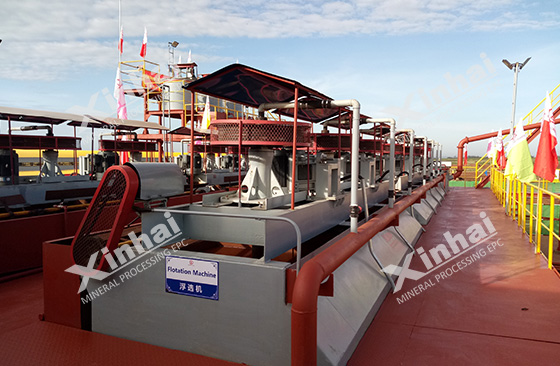
Direct priority flotation process: It can directly float out various useful minerals, has the advantages of strong adaptability and high flexibility, and has a wide adaptability to changes in ore grade. It is mainly suitable for primary sulfide ores with higher ore grades.
Mixed flotation process: All useful minerals in the ore are floated out together to obtain a mixed concentrate, and then the useful minerals in the mixed concentrate are selected one by one. This process has the advantages of simplifying the process, reducing mineral over-crushing, and facilitating sorting. When the total content of sulfide minerals in the original ore is not high, the various sulfide minerals are closely symbiotic, the structure is complex, and the embedded particle size is fine, this type of process can be given priority.
Partial mixed flotation process: First, two useful minerals in the ore are mixed and floated out, and then the mixed concentrate is separated into a single concentrate. This type of process is widely used in ore dressing plants. When the grade of a metal in copper-molybdenum ore, copper-lead ore, copper-zinc ore, and lead-zinc ore is low, it is more economical to use a partial mixed flotation process.
Equal floatability flotation process: The floatability of minerals in the ore is the main criterion. Minerals with good, medium and poor floatability will be selected in turn, and then various mixed concentrates will be selected in turn to separate different useful minerals.
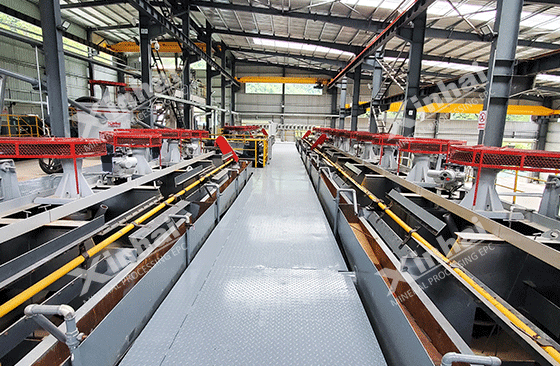
The above is a brief introduction to the selection of flotation processes and various flotation principle processes. The principle process selection of flotation technology is a complex and critical task, which requires comprehensive consideration of many factors such as ore properties, ore dressing plant scale and technical and economic conditions. Reasonable selection of flotation process can not only improve ore dressing efficiency and concentrate quality, but also effectively reduce ore dressing costs and maximize resource utilization.


 marketing@ytxinhai.com
marketing@ytxinhai.com  0086 13810327080
0086 13810327080 




























































































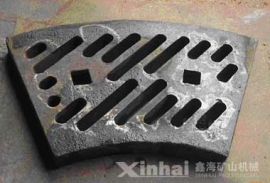









 CHAT
CHAT MESSAGE
MESSAGE



